Phonics Skills Normal Reading Worksheets for 7-Year-Olds
6 filtered results
-
From - To
Our Phonics Skills Normal Reading Worksheets for 7-Year-Olds offer engaging and effective ways to build foundational reading skills. Designed specifically for this age group, these worksheets help children master phonics through various fun and interactive activities. Each worksheet focuses on key aspects of phonics, such as letter sounds, word recognition, and pronunciation. With a diverse range of exercises, your child can enhance their reading abilities while enjoying the learning process. Perfect for home or classroom use, these resources will help young readers gain confidence and improve their literacy skills, setting the stage for future academic success.
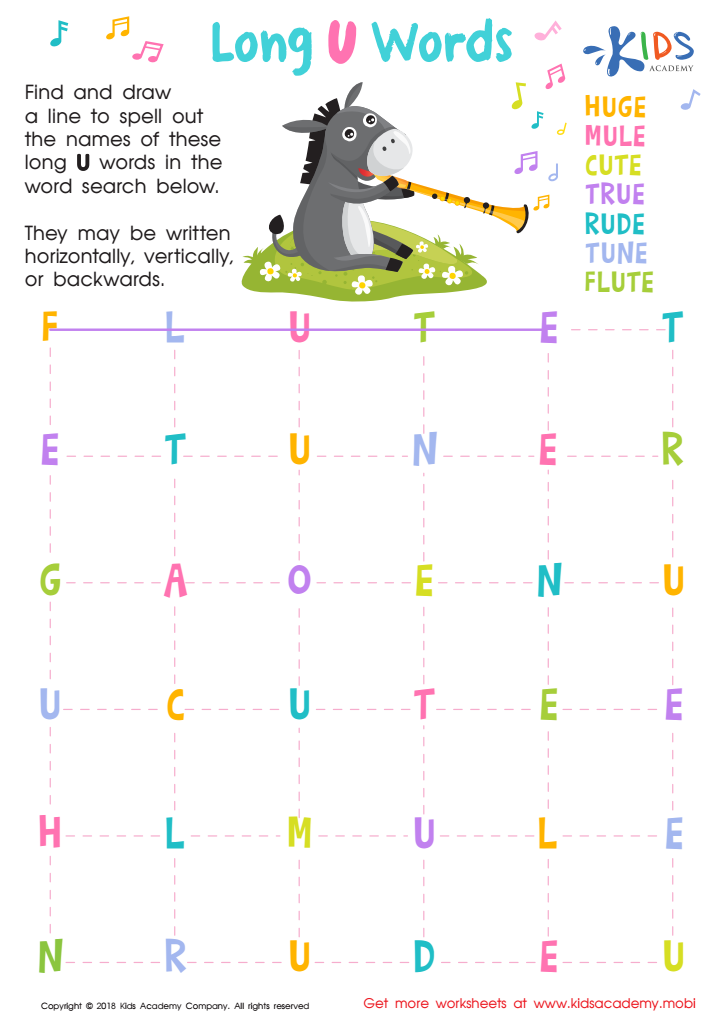

Long /u/ Words Worksheet
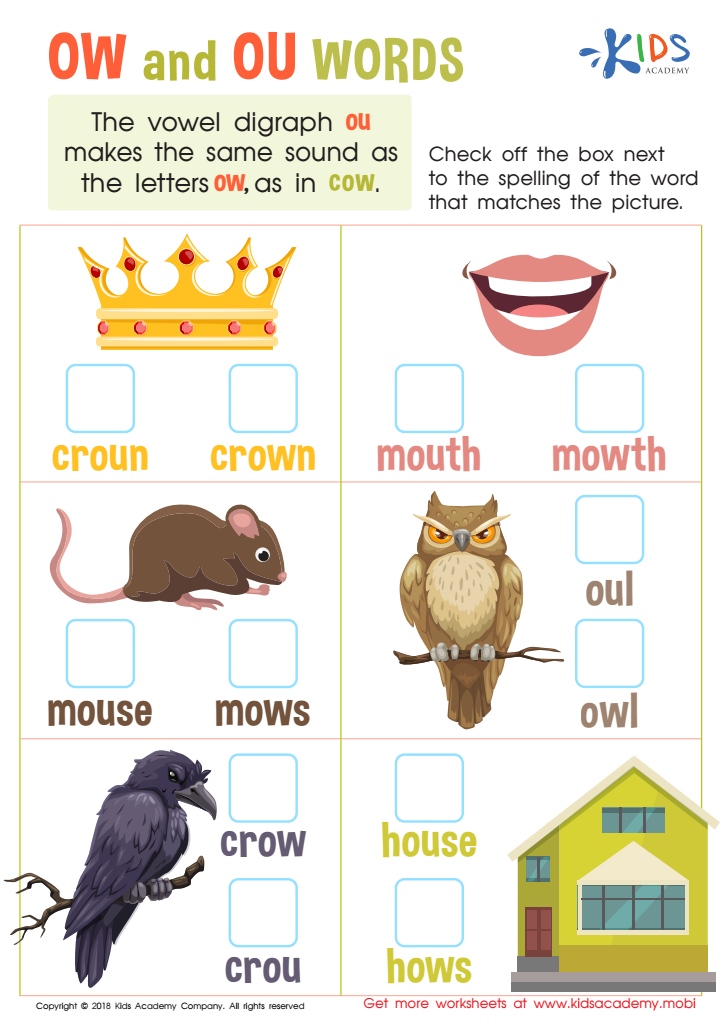

Reading: OW and OU Words Worksheet
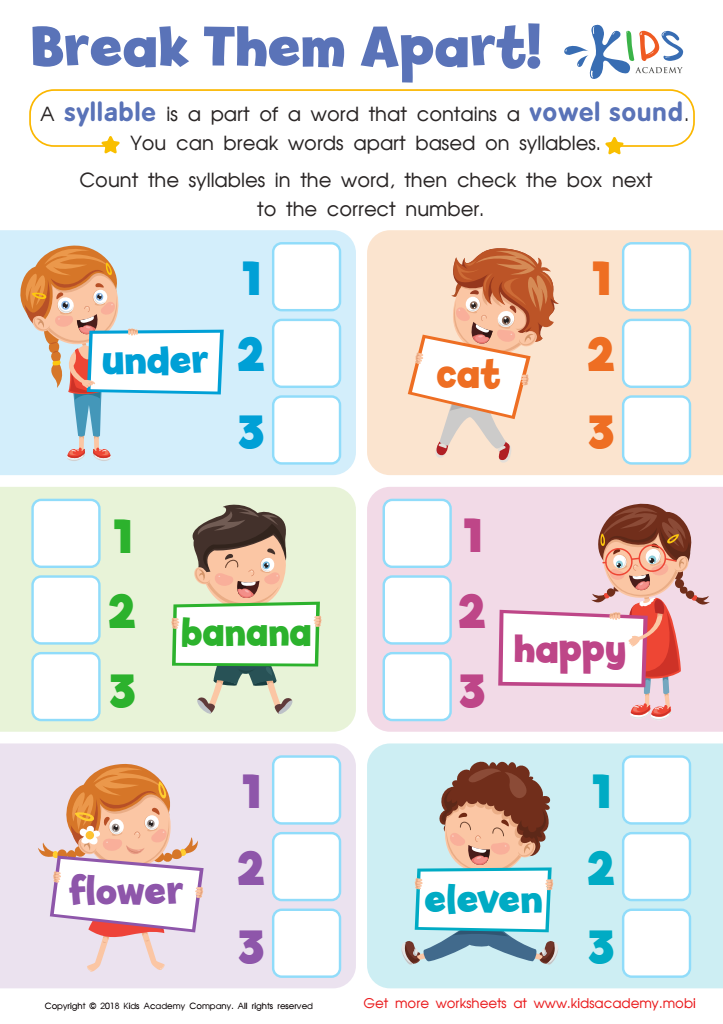

Reading: Break Them Apart Worksheet
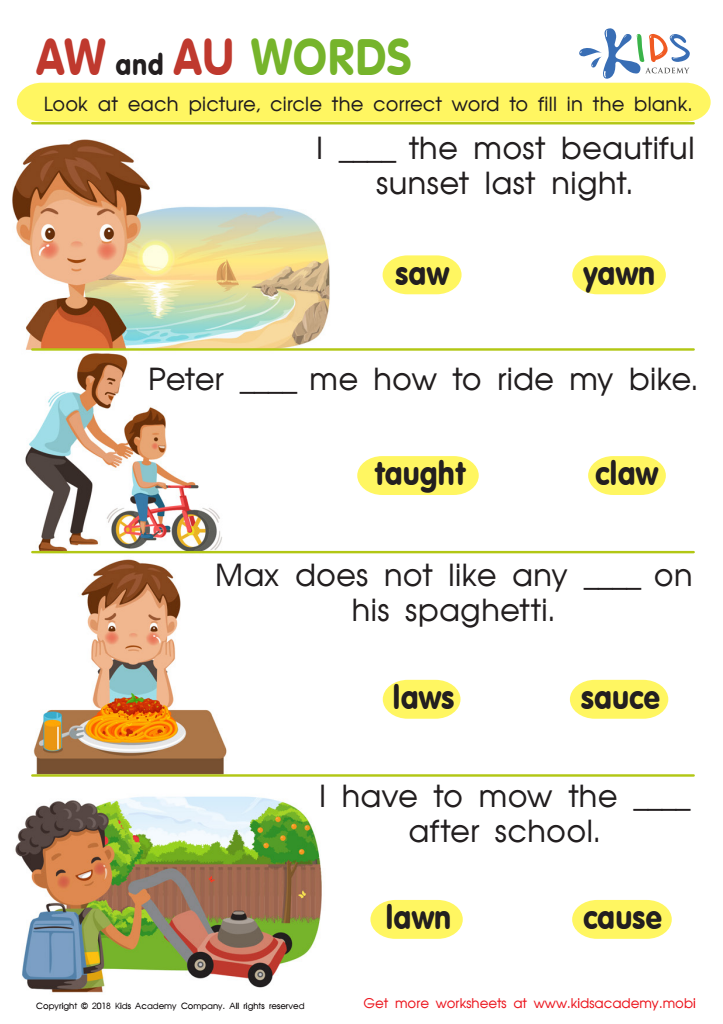

Reading: AW and AU Words Worksheet
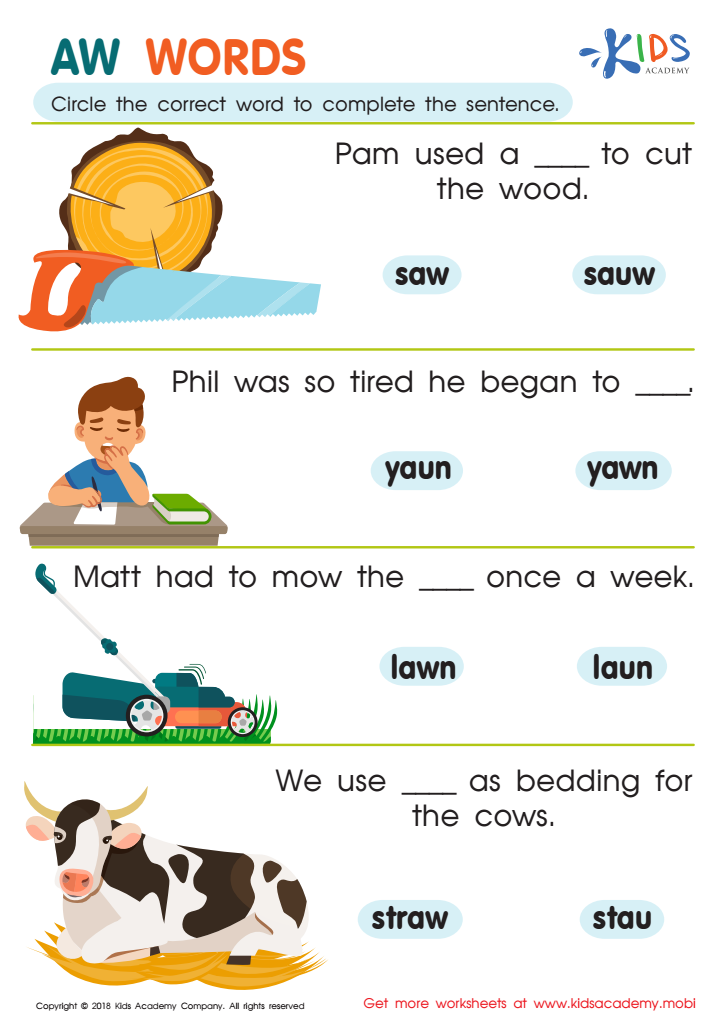

Reading: AW Words Worksheet


Long and Short E Worksheet
Phonics skills are foundational for reading proficiency, especially for 7-year-olds who are typically in the early stages of formal education. Mastery of phonics enables children to decode words accurately and efficiently, fostering a solid base for reading comprehension. When children understand the relationship between letters and sounds, they can independently tackle unfamiliar words, enhancing their fluency and confidence in reading.
Parents and teachers should care about phonics skills because they play a pivotal role in a child's academic success. Without strong phonics skills, a child may struggle with reading, which can hinder their ability to grasp complex material in subjects such as math, science, and social studies. Additionally, consistent reading success contributes to a positive attitude towards learning and education as a whole.
Moreover, early reading skills are linked to broader cognitive development. They improve vocabulary, sentence structure, and overall language skills, which are crucial for effective communication. By focusing on phonics, parents and teachers are not just teaching children to read; they're equipping them with tools that support lifelong learning and curiosity. Ignoring this vital aspect can lead to future academic struggles, low self-esteem, and a potential disinterest in learning. Thus, prioritizing phonics skills in early education fosters a strong educational foundation and contributes to well-rounded, confident learners.

 Assign to My Students
Assign to My Students




















